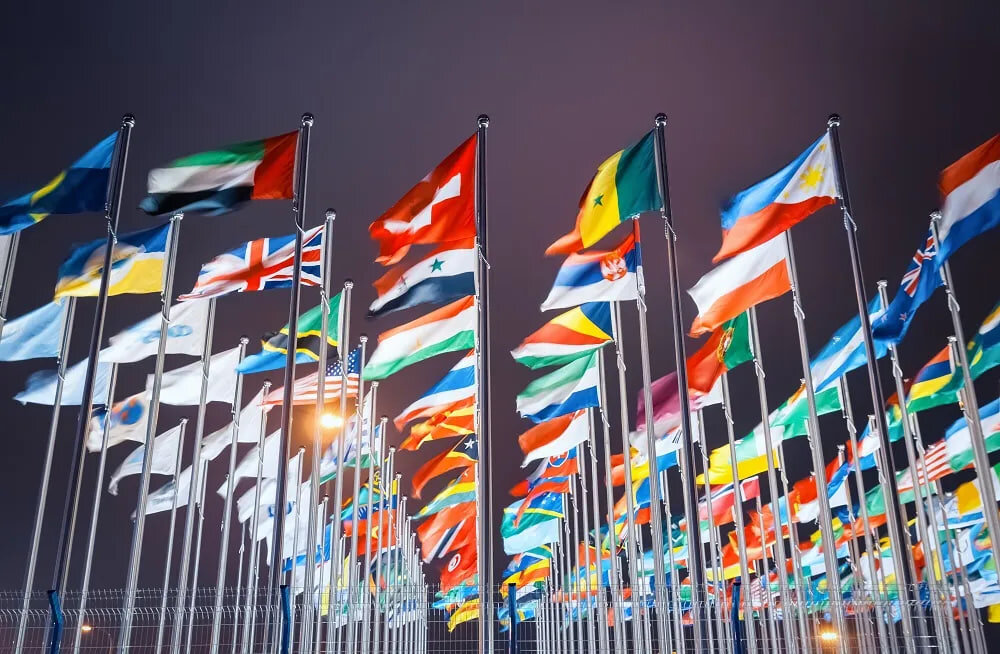Multilateralism in a changing world order needs more Global South power

Faced with the increasing uncertainty of the world, the comparison of national strength has changed rapidly, and a new world order is being brewing. As unilateralism and hegemonism are increasingly unable to be popular, the development direction of multilateralism is being increasingly discussed.
Firstly, good multilateralism should be equal, open and inclusive.
The universal multilateralism established after the Cold War was progressive for the times, but it did not prevent the resurgence of exclusivism and protectionism. Especially for emerging market economics and developing countries, a multilateral mechanism that continuously explores the breadth and depth of win-win cooperation should adhere to the spirit of openness, inclusiveness and equality. Equality in multilateralism is beyond ideology, social system, and development paths differences.
For the purpose of global prosperity and universal security, our world needs multilateralism. Key demand of Multilateralism is practitioners of activism. When a country's development strategy is aligned with regional cooperation initiatives, it can lead to more effective identification of shared interests and concerns between countries. An example is the Shanghai Cooperation Organization (SCO). Currently, the SCO contains 9 member states, 3 observer states and 14 dialogue partner states. 2023 is the 22nd year of the establishment of the SCO. As an important comprehensive regional organization, the SCO is playing a positive role in bringing peace, prosperity and development to the world. The "Shanghai Spirit" of mutual trust, mutual benefit, equality, consultation, respect for diverse civilizations and the pursuit of common development is exuding vigorous vitality.
The BRICS mechanism, which is attracting active participation of more Western Asian countries, is also an important force for emerging economies and developing countries to uphold multilateralism. The economic rise and development potential of the BRICS has demonstrated that the Global South countries have a strong capacity to influence the world.
Secondly, good multilateralism should be wary of hegemonic countries using the platform of international mechanisms to create confrontation.
Multilateralism needs to be premised on safeguarding the sovereignty and security of States, should respect national dignity, and should prevent hegemonic countries from weaponizing their leading economic, scientific and technological power.
People throughout the world are looking forward to an effective international mechanism that can truly maintain world peace and stability. Since the end of the Cold War, the international community has reshaped a set of international relationship and world order. International politics has been constantly debugging and oscillating between the realism that pursuing interests and the idealism that revering faith and morality.
NATO, for example, is a very typical military-security alliance with the characteristics of the time. NATO experienced reorientation after the Cold War. Critics of NATO, motivated by an abhorrence of the memory of the Kosovo war, see NATO as the party responsible for the collapse of the post-Cold War European security structures. However, as the Ukrainian crisis continues, views that affirming NATO see it as a key force in reducing turmoil in Europe, and also as an important tool for the Western world to continue to dominate the future world order. The willingness of some Asia-Pacific countries that do not have geopolitical affinities with the North Atlantic to partner with NATO is driven by a very high expectation of NATO's role in influencing the pattern and order of the world. However, it is important to be cautious about vengefulness and, in particular, to be wary of unilateral hegemony hidden behind the international organizations.
The xenophobia of security-oriented multilateral mechanisms is only one side of the coin. In fact, even the international mechanisms that, in an economic and social sense, have welcomed the advancement of trade and investment globalization are in recession. When more and more international powers go against the original intent of the organization's establishment and rashly expand the coverage of its security concerns in accordance with confrontational logic, it will lead to a more severe political polarization of the world, which is actually a betrayal of the ideal of benign international cooperation.
Thirdly, the Global South needs to be united and self-reliant on issues of core interests and major concerns.
The countries of the Global South are determined to follow their own path, in which it is vital to develop their economies and improve people's livelihoods through modernization in line with their national conditions.
In the turbulent international environment, a friendly partnership of mutual support and win-win cooperation can promote the goals of economic recovery and maintaining peace and stability. In the process of transforming the global governance system, advocating multilateralism and consistently supporting the United Nations to play an active role in international affairs is conducive to expanding the voice of Global South and promoting international justice.
The call for unity does not mean shaping new allied blocs, but rather bypassing the stereotypical Western notions of blocs and alliances, refraining from subjugation to the big powers, and maintaining a sober neutrality while creating a multipolar environment. It means enhancing the credibility and recognition of international organizations that are independent of the hegemonic powers through solidarity and self-strengthening; expanding the maximum common denominator within the organization by regulating organizational behavior and increasing the effectiveness of cooperation among members; reducing uncertainty while reducing external misperceptions of the organization and reinforcing its own cohesion with pragmatic and collaborative outcomes. China is an ex-officio member of the Global South and has always stood with the emerging economies and developing countries of the world in upholding independence, development and revitalization, and fairness and justice.
A peaceful, stable, prosperous and beautiful homeland for mankind is both a dream and a goal for human to build together. The world is at a crossroads of historical development. The practice of true multilateralism in a changing world order requires more countries from the Global South and more sustainable and innovative forces that they can bring to bear in order to reach a new and more equitable future of global governance.
Dr. ZHANG Yuan, Professor, The Middle East Studies Institute of Shanghai International Studies University, China
Leave a Comment